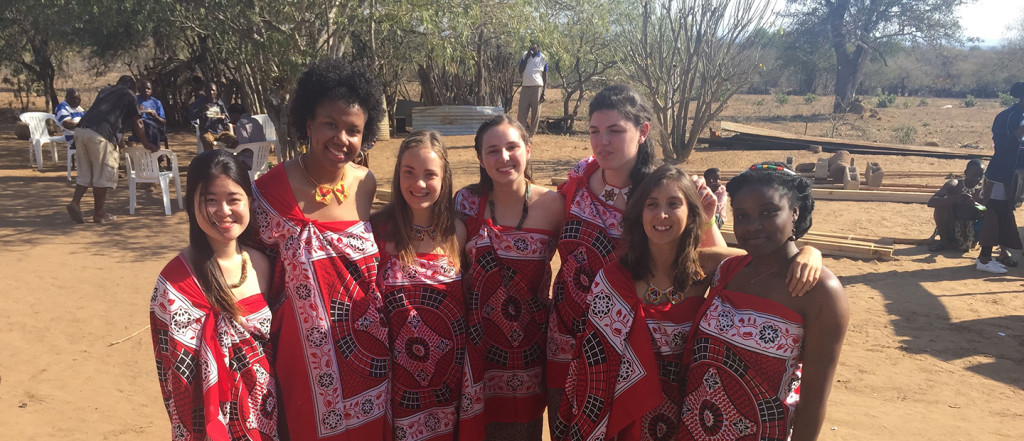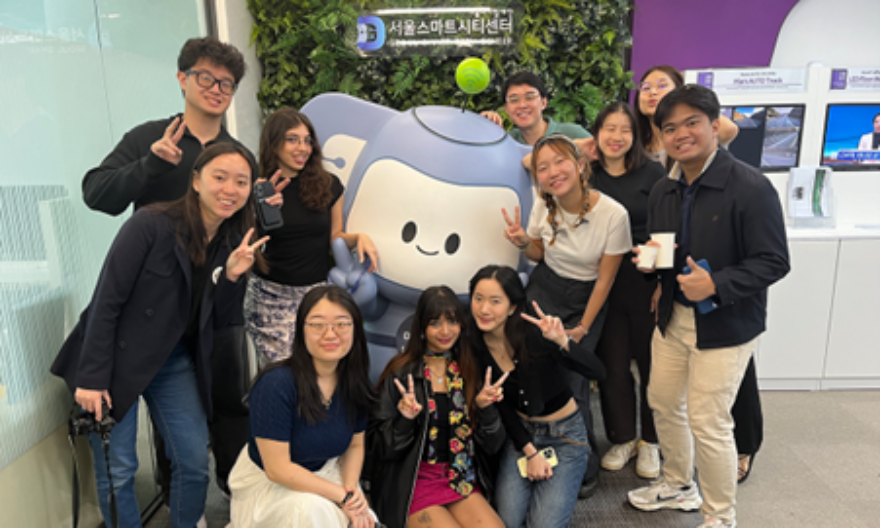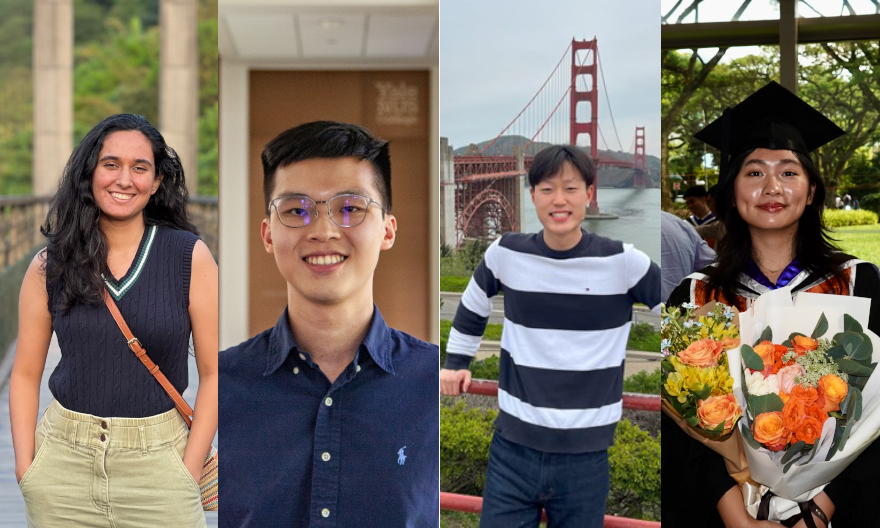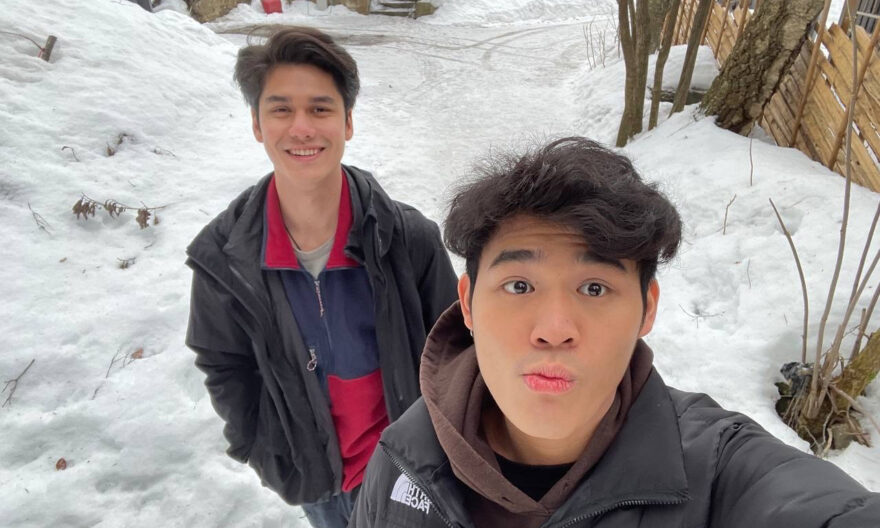From Tokyo to Morocco, the learning never stops

Over summer, Sharon Quaye, Chia Jie Lin (both Class of 2018) and Anandita Sabherwal (Class of 2019) were scattered across the globe in Asia, Africa and the Middle East undertaking vastly different academic pursuits on Yale Summer Session Abroad programmes.
While Jie Lin was in Tokyo, Japan on a course titled “Japanimation and Manga”, Sharon was shuttering between Johannesburg, South Africa and Mbabane, Swaziland where she was enrolled in “Visual Approaches to Global Health” exploring the intersections between documentary filmmaking and global health, and Anandita spent her summer in Morocco studying “Society and Politics of North Africa”
“As my world view and intellectual interests have been vastly shaped by anime and reading manga since my childhood, this course was perfect for me,” Jie Lin shared. “It provided a great opportunity for me to return to my childhood interests in my exploration of Japanese culture in a rigorous academic setting.”
“As an anthropology major, the course’s focus on the socio-historical contexts of production and consumption, and on gender and sexuality, complemented my long-term academic interests in pursuing cultural anthropology.”
Jie Lin particularly enjoyed the opportunity to meet and engage with members of the manga and anime industries in Tokyo.
“We visited an animation museum in Tokyo, the Osamu Tezuka (creator of Astro Boy) museum in Takarazuka, met up with shojo manga artist Ichinose Kaoru in Kyoto and even had a discussion session with representatives from Shogakukan, which is a publishing company highly prolific in the distribution of different manga and anime DVDs!”
For Sharon, a Life Sciences major who is interested in pursuing courses in Public Health at the graduate level, the course helped her realise the importance of humanising the issues that she was studying.
“One of the very first things our professor did at the start of our programme was to remind us that “every number has a story”. Sometimes as statisticians and public health officials, we might get too caught up in trying to reduce the HIV incidence rate or increase the percentage of women who have access to family planning that we forget that each number is linked to a person whose life story is more complex than his or her HIV status. I was constantly made aware and reminded of this truth through my interactions with the people we met on our trip.”
The main highlight of Sharon’s course was producing a documentary with her classmates.
“My group interviewed a gay man with HIV and tried to capture the different layers of his experiences living as a gay man in Swaziland. In Swaziland, acts of homosexuality are criminal offences and considered taboo so the Lesbian, Gay, Bisexual, Transgender & Intersex (LGBTI) community is particularly stigmatised in the community. Public health measures such as providing access to condoms and reproductive healthcare is therefore not an easy task and these were some of the issues we tried to cover in our documentary.”
As a Psychology major with a minor in History, it was the opportunity to immerse in a completely new culture that appealed to Anandita about the course.
“My main motive was an attempt to gain greater understanding of a completely new culture, through intimate interaction with its politics, topography, and community. My programme seemed specific enough to orientate me to Africa, a part of the world that I haven’t explored physically or academically, but also conceptually broad enough (discussing colonialism, nationalism, and the variations in the political field) to equip me with tools to analyse other postcolonial societies, including India and Singapore.”
At the same time, learning about Moroccan culture has taught Anandita many lessons in empathy and cultural engagement.
“Through this experience, I have come to realise that a cultural conversation, and emotional connections, are possible despite linguistic, religious, and political barriers. Witnessing Moroccans marvel over Bollywood while I enjoyed the traditional Tajine also made me realise that this cultural conversation is never unidirectional, that I cannot just come in and learn as much about a society, without sharing some aspects of my life back home with them.”
For Jie Lin, the most valuable aspect of the course was the opportunity to examine her personal interest from different perspectives. “The culmination of all these different and equally interesting experiences allowed us to get a glimpse of the anime and manga industry from many perspectives – that of an animator, an artist, as well as a publisher. In doing so, I have come out of this course being more well attuned to the intricacies of the anime and manga industry than I was before, being a consumer on the end of the supply chain.”
Besides Yale Summer Session Abroad programmes, Yale-NUS College’s Centre for International & Professional Experience (CIPE) also offers a wide range of enriching summer opportunities for students. From learning Japanese in Nagoya to studying French cinema in Paris, Yale-NUS students can get the opportunity to acquire fluency in a foreign language or take classes otherwise not offered at Yale-NUS as they deepen knowledge through experience and application outside the classroom.





